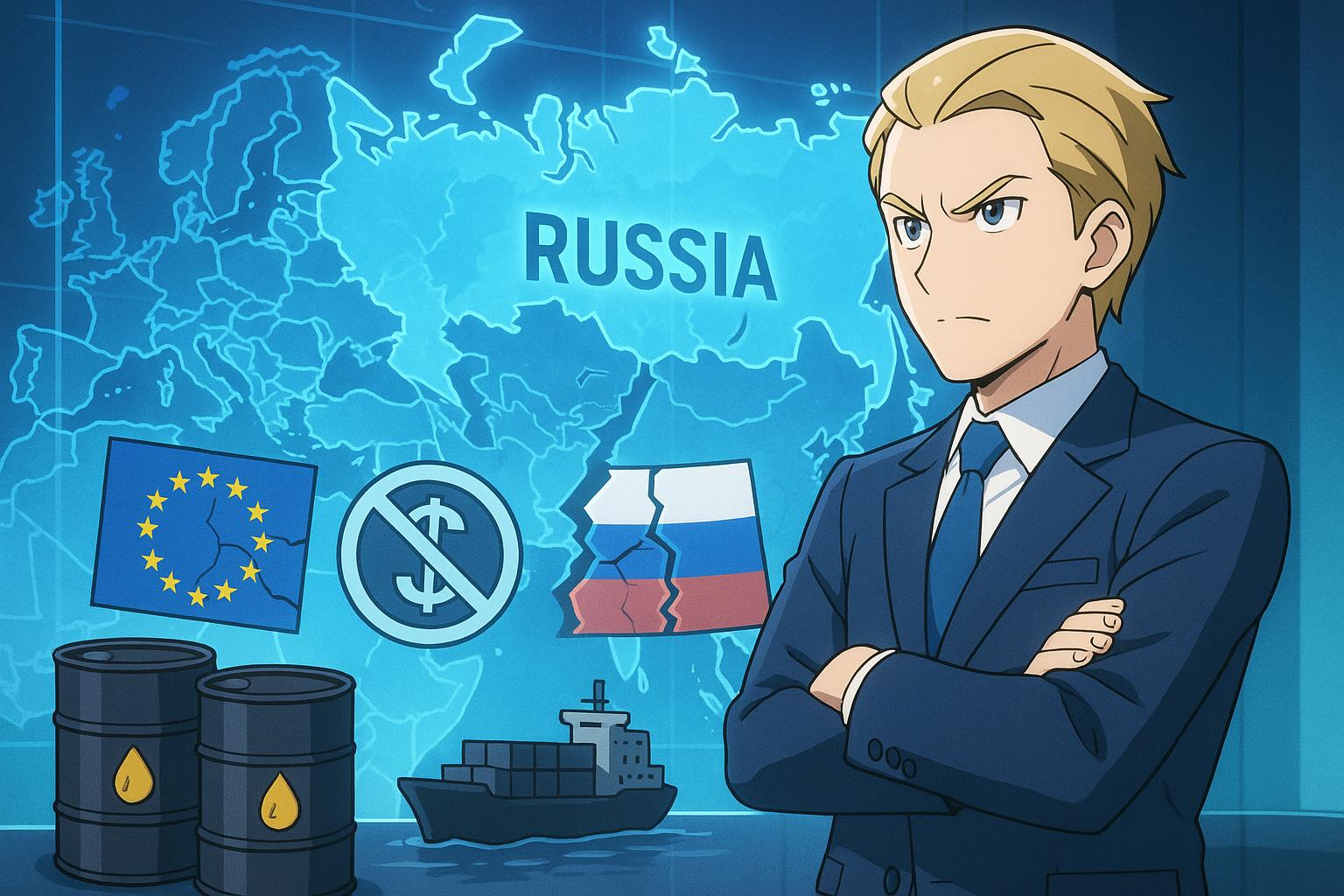European leaders find themselves at a critical juncture as they prepare for a potentially expansive new round of sanctions against Russia. Following President Vladimir Putin's continued defiance of calls for a ceasefire in Ukraine, the European Union has been readying what it describes as "massive" sanctions aimed at further crippling the Russian war economy. However, the efficacy of these measures is under threat, as the United States appears willing to reconsider its participation in this collective effort.
The immediate concern arose after President Donald Trump's recent phone call with Putin did not yield any new commitments for U.S. sanctions. Instead, Trump expressed a desire to explore the possibility of future trade with Russia once the "catastrophic" conflict concludes. “Russia wants to do largescale TRADE with the United States when this catastrophic ‘bloodbath’ is over,” he posted on social media, while suggesting that Ukraine could benefit economically from rebuilding after the war. This stance has left European officials anxious about the ramifications of a U.S. pivot away from a cooperative sanctions approach.
In response to ongoing aggressions, the EU has enacted its 17th package of sanctions, adding dozens of Russian individuals and businesses to a list that now encompasses over 2,400 entities facing asset freezes and travel bans. This recent expansion includes measures targeting Russia's so-called "shadow fleet"—vessels circumventing sanctions to transport oil. While the EU aims to dismantle this network, the challenge remains substantial as the fleet is now estimated to comprise around 800 vessels, a stark increase from just 100 two years ago.
European Commission President Ursula von der Leyen has indicated that more stringent sanctions targeting Moscow’s energy sector and banking institutions are on the horizon. These could conceivably include actions against the Nord Stream gas pipelines, which have already been rendered largely inoperative. Nevertheless, with the EU being the largest buyer of Russian liquefied natural gas, the bloc’s dependency complicates matters further.
Beyond immediate sanctions, Ukraine has called for stronger measures. The Ukrainian government is proposing secondary sanctions aimed at countries purchasing Russian oil, specifically naming large importers like China and India. This would mark a significant escalation in the sanctions strategy, which until now has been relatively conservative. Critics have highlighted the shortcomings of existing sanctions, arguing that more decisive actions are needed to firmly disrupt Russia's economic stability.
Despite a unified front among EU nations, cracks are beginning to emerge. Concerns linger about maintaining cohesion if the United States reduces its involvement. The complex dynamics of EU governance require unanimity for sanctions, a process that could be jeopardised by dissenting voices such as Hungary, which has previously threatened to veto sanctions. If such divisions surface, the EU might find its effectiveness severely undermined, especially with the crucial price cap on oil—set at $60 per barrel—being at stake.
Simultaneously, outside forces are at play, with foreign shipping companies like Japan's Mitsui O.S.K. Lines assessing the implications of these sanctions on their operations. Their vessels have been implicated in transporting liquefied natural gas from Russia, raising questions about compliance amidst the evolving regulatory landscape.
With the shadows of uncertainty looming over both U.S. policy and EU unity, the stakes remain high. As Europe grapples with the implications of reduced American leadership, it feels compelled to step up as a beacon of resolve against Russian aggression. Yet, with varying priorities across its member states, the question remains: can the EU act decisively enough without the full backing of the U.S.?
Reflecting on these developments and the precarious nature of European unity, Kaja Kallas, the EU’s foreign policy chief, emphasised the critical importance of the oil price cap, declaring it “the most important” measure in their forthcoming sanctions package. Without a cohesive strategy, the EU risks undermining the very progress it has fought to achieve in the face of Russian hostility.
In these turbulent times, the European Union’s resolve faces testing waters. The need for a unified approach to sanctions grows more urgent as the international community watches closely, aware that the outcome will significantly shape the geopolitical landscape in the months and years to come.
Reference Map
- Information on EU sanctions strategy and concerns about U.S. involvement
- Ukraine's proposals for stronger sanctions
- Shipping companies assessing impact of EU sanctions
- Debates in U.S. and the context of sanctions
- Newly adopted sanctions and responses from European leaders
- Political dynamics regarding Trump and Russia
Source: Noah Wire Services
